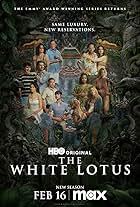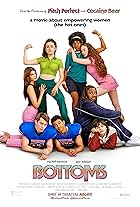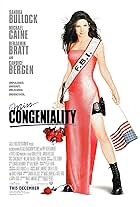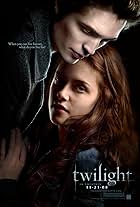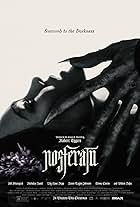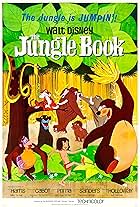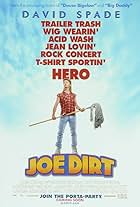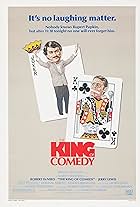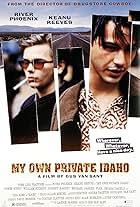
fpcholcomb
Joined Sep 2018
Welcome to the new profile
We're still working on updating some profile features. To see the badges, ratings breakdowns, and polls for this profile, please go to the previous version.
Ratings588
fpcholcomb's rating
Reviews43
fpcholcomb's rating
The King dissects what it means to be a leader in a convoluted and amorphous bureaucracy more than it seeks to depict historical events accurately. It is easy to see why anyone who has a particular interest in the time period might be put off by some of its decisions, but I found it both an interesting period piece and a surprisingly deep character study of a man burdened and bolstered by privilege. The film begins with a kind of trite prodigal son narrative as a young Henry V, played by Timothy Chalamet, drinks to excess while cursing his father, King Henry IV, silently and aloud blaming him for the state of England. More interestingly, England is wrought with conflict, rebellions arise against the king and he is begrudged by many of the nobles who ideally should be united under his banner.
The opening shot is one of my favorites in the whole film, it subtly establishes the setting and tone. When the film is as it is in the opening scene, it is superb, letting the cinematography do most of the storytelling. The shot begins slowly panning up and over a battlefield littered with corpses as several knights wander through the carnage. One knight, who we will later discovery is a noble by the name of Percy the Hotspur in service of Henry IV, walks helmetless as the sun sets behind him. He notices a wounded and suffering man crawling on the ground and approaches him. He speaks to the dying man in a calm tone, telling him he is crawling in the wrong direction, the wind he feels is coming from England, Scotland is in the other direction. He then strikes down killing the man with a stoic yet strained expression on his face.
The scene displays several things at once in a concise and brilliant manner. Hotspur's amor is decorated and stands in stark contrast to the unarmored dying man, he is a knight putting down a rebellion of unarmored peasants, this fight should not be if England was under stable leadership. His exasperation indicates he shares something in common with the man he just felled, disappointment with his King. His brutality can be seen as a mercy but also displays how hardened and violent life is during this century. A violent time will demand violence from its king. England is divided, its nobles and peasants unhappy alike, and the sun is setting on the Henry IV's reign. All of this is displayed tightly in just under two minutes.
The scene is excellent, but then we get to the biggest weakness of the film, its length padded by unnecessary dialogue and sequences explaining what otherwise was, or could be, subtly expressed. While expertly directed and with compelling set design and performances, the script could have been tighter and respected the audience to a much greater degree. The reiteration of all the subtlety of the first scene takes place a few scenes later when Percy Hotspur directly airs his grievances during an audience with King Henry IV. All the subtext of that first scene becomes pure explicit text in the confrontation scene. Henry IV even says that Hotspur will betray him, and then of course Hotspur does. The film makes several compromises like this that are totally unnecessary.
The cinematography and dedication to the period make the film an engaging watch, but the Shakespearean drama plot is made more digestible and less intricate to a broader audience through the conversion of slow and dramatic implication into actual explicit dialogue. A prime example of this is a conversation shared by Henry V and his sister after he takes the throne, in which she explicitly states the primarily conflict of the film, as if people watching up to that point could not intuit it. A tight one hour and forty five minute (1:45) movie is stretched into a two hour and twenty minute (2:20) one, and the film is a weaker and less intelligent because of it.
What makes the film compelling despite this is Henry V's struggle and the dedicated performance of Chalamet. The central theme is that of intense isolation that Henry V experiences as he assumes the throne. Chalamet conveys much with his struggled expressions and outbursts. He is a young king, he was used to having friends to drink and celebrate with, not advisors and noble courts all assailing him with different mentalities and perspectives. He seeks to correct his father's mistakes and unite England, but unlike the real Henry V, he seeks to do this through peace, rather than conflict. Circumstance betrays him.
The central issue that drives the plot is France's perceived taunts and insults towards Henry V as he assumes the throne. The bloodlines of the nobility of both countries overlap, some in England wish to make a common enemy of France to unite the country and create a stronger national identity. The question Henry V must grapple with is how he can secure his young rule and justify his reign to all manner of parties both within and without. He leans on the counsel of several members of his court, but can he trust these people, each with their own differing ambitions and goals? Is the posturing of France legitimate, or is he seeing what someone wants him to see to stoke the flames of conflict?
This intrigue is fascinating, and like Henry V, the viewer cannot be sure of what is and what isn't, who can be trusted and who cannot be trusted. The power of the throne attracts all manner of challenges. When the film erupts into actual bouts of violence, the tension of the drama overflows and is viscerally engaging. Henry V's duel with Percy the Hotspur is a real highlight and I would have liked a few more scenes like it, or just more battle sequences in general because the armor and weaponry appeared to me quite realistic. When Henry V gets to France, the film picks up momentum with the introduction of Pattinson's villain, the prince of France, who was entertaining to watch if somewhat cartoonishly evil. He is portrayed with an exaggerated menace which I think played into the addled justifications of Henry V's conquest. The battle of Agincourt is also compelling and really exemplifies how combat would often be a brutal melee rather than an organized affair.
I think the film's only major error yet to be discussed in my opinion is that the ending could not rest on the ambiguity of its earlier drama. There is a confession, and an illumination of real occurrences, which brings closure to that chapter of the King's life. It felt too tidy for the rest of the film, and quite honestly felt generically Hollywood in an otherwise unique feeling film. However, The King was still an excellent watch, full of amazing performances, breathtaking shots, and contains a moody and severe atmosphere that is unlike much of the other period pieces I have seen. If you can forgive the historical inaccuracy and the longwinded runtime that at time treats the audience without intelligence, you will find much to appreciate. Heavy lies the crown, not from the weight of it, but from the burden of the body politic, a fascinating throughline for a film, executed excellently and worth a watch.
The opening shot is one of my favorites in the whole film, it subtly establishes the setting and tone. When the film is as it is in the opening scene, it is superb, letting the cinematography do most of the storytelling. The shot begins slowly panning up and over a battlefield littered with corpses as several knights wander through the carnage. One knight, who we will later discovery is a noble by the name of Percy the Hotspur in service of Henry IV, walks helmetless as the sun sets behind him. He notices a wounded and suffering man crawling on the ground and approaches him. He speaks to the dying man in a calm tone, telling him he is crawling in the wrong direction, the wind he feels is coming from England, Scotland is in the other direction. He then strikes down killing the man with a stoic yet strained expression on his face.
The scene displays several things at once in a concise and brilliant manner. Hotspur's amor is decorated and stands in stark contrast to the unarmored dying man, he is a knight putting down a rebellion of unarmored peasants, this fight should not be if England was under stable leadership. His exasperation indicates he shares something in common with the man he just felled, disappointment with his King. His brutality can be seen as a mercy but also displays how hardened and violent life is during this century. A violent time will demand violence from its king. England is divided, its nobles and peasants unhappy alike, and the sun is setting on the Henry IV's reign. All of this is displayed tightly in just under two minutes.
The scene is excellent, but then we get to the biggest weakness of the film, its length padded by unnecessary dialogue and sequences explaining what otherwise was, or could be, subtly expressed. While expertly directed and with compelling set design and performances, the script could have been tighter and respected the audience to a much greater degree. The reiteration of all the subtlety of the first scene takes place a few scenes later when Percy Hotspur directly airs his grievances during an audience with King Henry IV. All the subtext of that first scene becomes pure explicit text in the confrontation scene. Henry IV even says that Hotspur will betray him, and then of course Hotspur does. The film makes several compromises like this that are totally unnecessary.
The cinematography and dedication to the period make the film an engaging watch, but the Shakespearean drama plot is made more digestible and less intricate to a broader audience through the conversion of slow and dramatic implication into actual explicit dialogue. A prime example of this is a conversation shared by Henry V and his sister after he takes the throne, in which she explicitly states the primarily conflict of the film, as if people watching up to that point could not intuit it. A tight one hour and forty five minute (1:45) movie is stretched into a two hour and twenty minute (2:20) one, and the film is a weaker and less intelligent because of it.
What makes the film compelling despite this is Henry V's struggle and the dedicated performance of Chalamet. The central theme is that of intense isolation that Henry V experiences as he assumes the throne. Chalamet conveys much with his struggled expressions and outbursts. He is a young king, he was used to having friends to drink and celebrate with, not advisors and noble courts all assailing him with different mentalities and perspectives. He seeks to correct his father's mistakes and unite England, but unlike the real Henry V, he seeks to do this through peace, rather than conflict. Circumstance betrays him.
The central issue that drives the plot is France's perceived taunts and insults towards Henry V as he assumes the throne. The bloodlines of the nobility of both countries overlap, some in England wish to make a common enemy of France to unite the country and create a stronger national identity. The question Henry V must grapple with is how he can secure his young rule and justify his reign to all manner of parties both within and without. He leans on the counsel of several members of his court, but can he trust these people, each with their own differing ambitions and goals? Is the posturing of France legitimate, or is he seeing what someone wants him to see to stoke the flames of conflict?
This intrigue is fascinating, and like Henry V, the viewer cannot be sure of what is and what isn't, who can be trusted and who cannot be trusted. The power of the throne attracts all manner of challenges. When the film erupts into actual bouts of violence, the tension of the drama overflows and is viscerally engaging. Henry V's duel with Percy the Hotspur is a real highlight and I would have liked a few more scenes like it, or just more battle sequences in general because the armor and weaponry appeared to me quite realistic. When Henry V gets to France, the film picks up momentum with the introduction of Pattinson's villain, the prince of France, who was entertaining to watch if somewhat cartoonishly evil. He is portrayed with an exaggerated menace which I think played into the addled justifications of Henry V's conquest. The battle of Agincourt is also compelling and really exemplifies how combat would often be a brutal melee rather than an organized affair.
I think the film's only major error yet to be discussed in my opinion is that the ending could not rest on the ambiguity of its earlier drama. There is a confession, and an illumination of real occurrences, which brings closure to that chapter of the King's life. It felt too tidy for the rest of the film, and quite honestly felt generically Hollywood in an otherwise unique feeling film. However, The King was still an excellent watch, full of amazing performances, breathtaking shots, and contains a moody and severe atmosphere that is unlike much of the other period pieces I have seen. If you can forgive the historical inaccuracy and the longwinded runtime that at time treats the audience without intelligence, you will find much to appreciate. Heavy lies the crown, not from the weight of it, but from the burden of the body politic, a fascinating throughline for a film, executed excellently and worth a watch.
Helpful•20
My Own Private Idaho is of two natures. Its DNA is made up of one part Shakespearean drama while the other more sophisticated part is made up of a poignant emotional interrogation of how people who fall between the cracks of society can be used and abused. Gus Van Sant has a colorful, often breathtaking vision that he brings to life with incredible natural shots and orchestrated play like sequences, but the real lifeblood of this movie is River Phoenix's performance, which is nothing short of incredible. Phoenix plays Mike Waters, a rudderless Teen abandoned by his contemptable family, constantly searching for his mother. He desperately desires some kind of love to cling to, to lift himself from the street, but is forced to turn tricks to eke out some kind of existence.
To make matters worse, he also suffers from narcolepsy, making him even more downtrodden. He is constantly robbed and taken from one place to another in this state, meanwhile his narcoleptic dreams fixate on his youth where he felt the warmth of his mother's embrace. His best friend Scott Favor, played adequately by Keanu Reeves, lives the life of a streetwalker as well, but only as a way to rebel against his privilege and powerful father. His birthright gives him a safety net that Waters does not have. Favor is a tourist, while Waters is a permanent fixture in the life. Waters covets, Favor indulges.
The misery and homelessness Phoenix displays in something as simple as a tepid look down an empty road engenders a kind of empathy that goes beyond Van Sant's relatively straightforward messaging. The film clearly critiques American individualism and privilege as older and more well off members of society continually prey upon younger people with no recourse available to them in a disparate and rudderless society. It does this bluntly even at one point going as far as having one off characters monologue about times they were abused working against their will in the sex trade. These stories have no bearing on the actual plot but serve as likely real world examples of how those without a proper support structure or family home end up harmed without any recourse. I usually am not a fan of movies that so bluntly and without nuance convey their message, but this film makes other interesting creative and honestly risky decisions that make me forgive it.
An example of a bold creative choice is the robbery sequence that feels straight out of a Midsummers Night's Dream with how fanciful and unbelievable it is. Characters often trail off into Shakespearean diatribes that, though remind the viewer of the artifice of the medium, feel refreshingly different. The movie could have been relentlessly bleak and dark, but there is a levity to its construction that makes it a more memorable experience. The fluctuation in pacing and the idiosyncratic scenes don't accurately portray all aspects of life on the street, but it makes for an interesting watch.
Van Sant also expertly uses color to fill out the tonally varying sequences. Color pallets swaps and lighting fluctuation contrast the dark and unkempt streets with the lush and windswept plains. The insides of apartments are often stylized and minimalistic. My favorite scenes are the choppily cut dream sequences where Waters withdraws into his inner Idaho metaphorically traveling the never-ending road to his unknown home. The film flexes its confident and competent construction especially when the writing and plot structure become more fantastical and unreal.
Some of the choices here I felt conflicted with the overall structure of the movie. The best example I can think is the final sequence, which could have ended on an incredibly powerful line from Waters and a beautiful shot of his internal Idaho, the thesis statement for the movie, starting and ending at the same point running along the same axis of Waters' mind's eye. However, it extends itself, beyond this in a way that I found redundant and lacking nuance.
To make matters worse, he also suffers from narcolepsy, making him even more downtrodden. He is constantly robbed and taken from one place to another in this state, meanwhile his narcoleptic dreams fixate on his youth where he felt the warmth of his mother's embrace. His best friend Scott Favor, played adequately by Keanu Reeves, lives the life of a streetwalker as well, but only as a way to rebel against his privilege and powerful father. His birthright gives him a safety net that Waters does not have. Favor is a tourist, while Waters is a permanent fixture in the life. Waters covets, Favor indulges.
The misery and homelessness Phoenix displays in something as simple as a tepid look down an empty road engenders a kind of empathy that goes beyond Van Sant's relatively straightforward messaging. The film clearly critiques American individualism and privilege as older and more well off members of society continually prey upon younger people with no recourse available to them in a disparate and rudderless society. It does this bluntly even at one point going as far as having one off characters monologue about times they were abused working against their will in the sex trade. These stories have no bearing on the actual plot but serve as likely real world examples of how those without a proper support structure or family home end up harmed without any recourse. I usually am not a fan of movies that so bluntly and without nuance convey their message, but this film makes other interesting creative and honestly risky decisions that make me forgive it.
An example of a bold creative choice is the robbery sequence that feels straight out of a Midsummers Night's Dream with how fanciful and unbelievable it is. Characters often trail off into Shakespearean diatribes that, though remind the viewer of the artifice of the medium, feel refreshingly different. The movie could have been relentlessly bleak and dark, but there is a levity to its construction that makes it a more memorable experience. The fluctuation in pacing and the idiosyncratic scenes don't accurately portray all aspects of life on the street, but it makes for an interesting watch.
Van Sant also expertly uses color to fill out the tonally varying sequences. Color pallets swaps and lighting fluctuation contrast the dark and unkempt streets with the lush and windswept plains. The insides of apartments are often stylized and minimalistic. My favorite scenes are the choppily cut dream sequences where Waters withdraws into his inner Idaho metaphorically traveling the never-ending road to his unknown home. The film flexes its confident and competent construction especially when the writing and plot structure become more fantastical and unreal.
Some of the choices here I felt conflicted with the overall structure of the movie. The best example I can think is the final sequence, which could have ended on an incredibly powerful line from Waters and a beautiful shot of his internal Idaho, the thesis statement for the movie, starting and ending at the same point running along the same axis of Waters' mind's eye. However, it extends itself, beyond this in a way that I found redundant and lacking nuance.
Helpful•00
Longslegs was a major disappointment. The film is manipulative and often tells rather than shows. Outside of the excellent opening sequences, its horror consists almost entirely of jump cut scares. Scenes immediately shift to others, if only for a moment, and the edit is accompanied by blaring music. I was not jumping out of fright, but out of shock. Jump cutting to "disturbing" imagery is a cheap trick to frighten. Longlegs does cultivate a dread filled atmosphere that keeps a viewer off kilter, but it does so in a way that feels totally artificial and unearned.
Many aspects of the films construction draw allegorical significance from its dollhouse theme, but it does not make for effective horror. The characters move from point A to point B in a totally arbitrary way. There is no real understanding a viewer will come to, or any true crescendos of horror or thrills, and in the last moments the film will just explain to you what is happening before concluding abruptly and uncreatively.
But then again, the film had to be explained at the end because the plot is nonsensical. There are many potholes best not to think about at all. The main character, a young FBI agent named Lee Harker (played adequately by Maika Monroe) possesses a preternatural ability to sense lurking danger, albeit in a stilted and anxious way. As the film unfolds, she rapidly pieces together all these potentially interesting plotlines set up in the first act with little substance to her actual detective work. The serial killer leaves coded notes? She decodes it in a night after one is left on her desk. There is a dangerous man on the loose? Oh, he is in this house right here. Are the murders done in a kind of pattern? Cut to agent Harker knowing exactly what kind of satanic symbol indicates the key.
I am not exaggerating. Each "detective" sequence essentially starts with her telling her boss she figured something out and then her boss just immediately going with what she says. This is explained by the plot and by her boss's characterization of her as "half psychic", however, it is not a satisfying experience for the viewer to sit passively, without any clues, while she does things like draw images over dates and to immediately discern a pattern that otherwise was imperceptible to the audience. It is as if the director knew the actual shot by shot composition of the film did not effectively express what was going on, so the plot must just coalesce with a montage and voice over.
Critically, the film doesn't really have any other characters beyond the killer, agent Harker, her boss agent Carter, and her mother. There is very little mystery as to how the plot can crescendo with so few components. It even calls upon incredibly minor characters who get little to no screentime to act as fodder for the final act because there were no good substitutes. As an aside, the daughter of agent Carter very early on in the film delivered a line that absolutely sent me up a wall with how telegraphed it was. On one hand you have an extremely convoluted plotline about a series of family killings connected only by Longlegs, and on the other hand you have a bog-standard elevation of stakes as agent Harker is drawn deeper and deeper into the mystery.
The film, however, does have redeemable qualities. The shot composition is interesting when it is not doing "spooky" editing jump cuts. Characters often feel out of place and the world is shockingly devoid of life. It does feel as if everything that occurs is in a different world, as if agent Carter was just living in a facsimile, a doll house. This framing generates a tense atmosphere, accented by solid early sequences like when detective Harker is shown isolated after work in her dimly lit wooden apartment feeling utterly alone in an inhospitable world. The color palate is muted and dirty which fit the tone. Cage is creepy, even though I felt like the face makeup prosthetics were a poor choice. The evil characters look incredibly evil in this film, another way in which it just telegraphs how it wants the viewer to feel.
Maybe if you are hard of hearing you can stomach the obnoxious jump cuts, and maybe some can enjoy the ride of a step-by-step detective thriller that involves little to no actual detecting, just supernatural intuition. If that is the case, this movie is for you. If not, don't fall prey to the excellent marketing. Pass up this film or catch it when it is free on a streaming service.
Many aspects of the films construction draw allegorical significance from its dollhouse theme, but it does not make for effective horror. The characters move from point A to point B in a totally arbitrary way. There is no real understanding a viewer will come to, or any true crescendos of horror or thrills, and in the last moments the film will just explain to you what is happening before concluding abruptly and uncreatively.
But then again, the film had to be explained at the end because the plot is nonsensical. There are many potholes best not to think about at all. The main character, a young FBI agent named Lee Harker (played adequately by Maika Monroe) possesses a preternatural ability to sense lurking danger, albeit in a stilted and anxious way. As the film unfolds, she rapidly pieces together all these potentially interesting plotlines set up in the first act with little substance to her actual detective work. The serial killer leaves coded notes? She decodes it in a night after one is left on her desk. There is a dangerous man on the loose? Oh, he is in this house right here. Are the murders done in a kind of pattern? Cut to agent Harker knowing exactly what kind of satanic symbol indicates the key.
I am not exaggerating. Each "detective" sequence essentially starts with her telling her boss she figured something out and then her boss just immediately going with what she says. This is explained by the plot and by her boss's characterization of her as "half psychic", however, it is not a satisfying experience for the viewer to sit passively, without any clues, while she does things like draw images over dates and to immediately discern a pattern that otherwise was imperceptible to the audience. It is as if the director knew the actual shot by shot composition of the film did not effectively express what was going on, so the plot must just coalesce with a montage and voice over.
Critically, the film doesn't really have any other characters beyond the killer, agent Harker, her boss agent Carter, and her mother. There is very little mystery as to how the plot can crescendo with so few components. It even calls upon incredibly minor characters who get little to no screentime to act as fodder for the final act because there were no good substitutes. As an aside, the daughter of agent Carter very early on in the film delivered a line that absolutely sent me up a wall with how telegraphed it was. On one hand you have an extremely convoluted plotline about a series of family killings connected only by Longlegs, and on the other hand you have a bog-standard elevation of stakes as agent Harker is drawn deeper and deeper into the mystery.
The film, however, does have redeemable qualities. The shot composition is interesting when it is not doing "spooky" editing jump cuts. Characters often feel out of place and the world is shockingly devoid of life. It does feel as if everything that occurs is in a different world, as if agent Carter was just living in a facsimile, a doll house. This framing generates a tense atmosphere, accented by solid early sequences like when detective Harker is shown isolated after work in her dimly lit wooden apartment feeling utterly alone in an inhospitable world. The color palate is muted and dirty which fit the tone. Cage is creepy, even though I felt like the face makeup prosthetics were a poor choice. The evil characters look incredibly evil in this film, another way in which it just telegraphs how it wants the viewer to feel.
Maybe if you are hard of hearing you can stomach the obnoxious jump cuts, and maybe some can enjoy the ride of a step-by-step detective thriller that involves little to no actual detecting, just supernatural intuition. If that is the case, this movie is for you. If not, don't fall prey to the excellent marketing. Pass up this film or catch it when it is free on a streaming service.
Helpful•114

